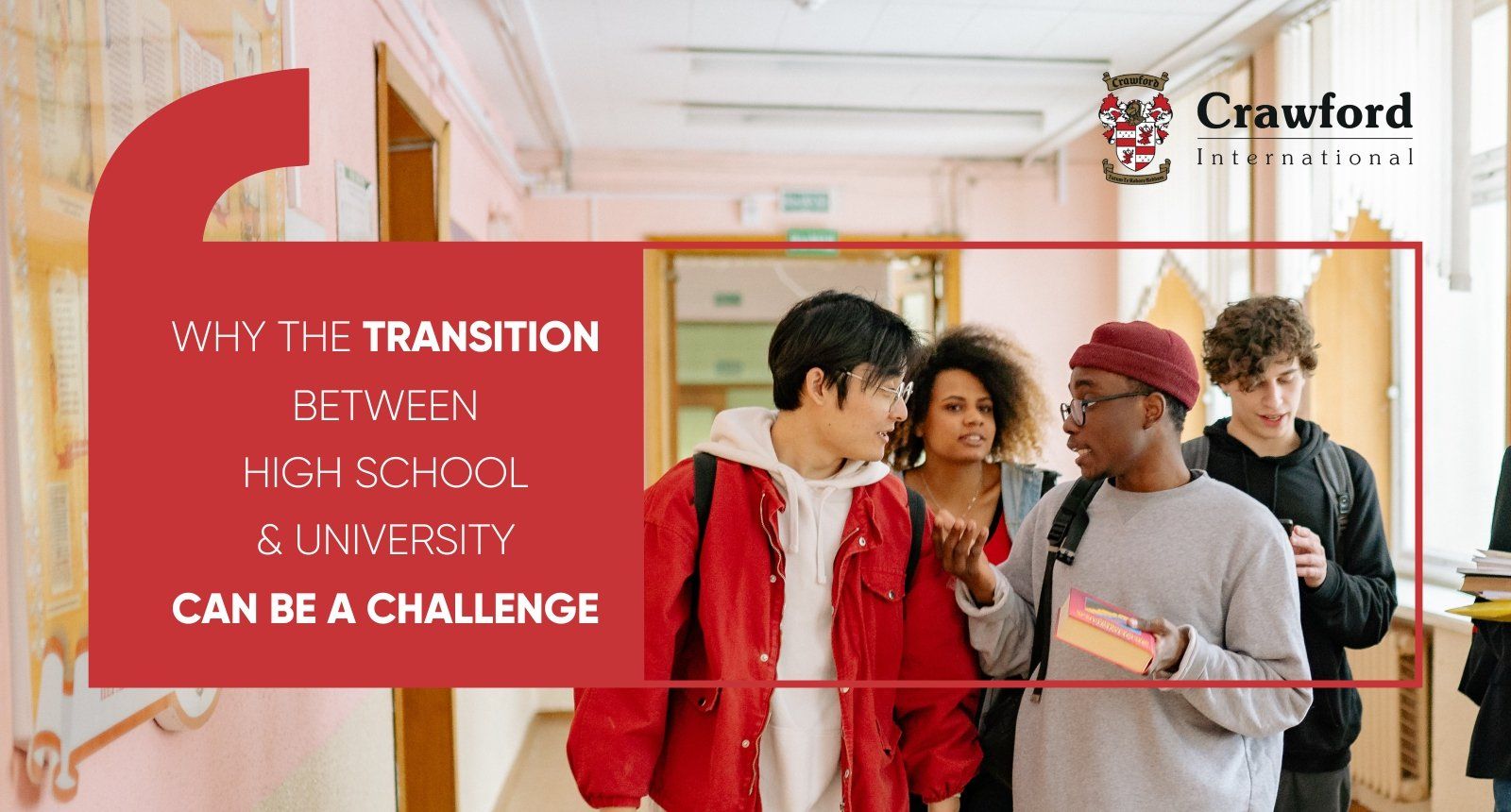The Transition Between High School & Univeristy
November 4, 2022
Going from high school to tertiary studies can be a challenge – here’s what you need to know

In high school your child is a big fish in a relatively small pond, but once they walk through the esteemed halls of a university or college they become somewhat small fish in what can feel like a giant ocean. Working through this drastic change from what they’re used to and confronting the unknown and overwhelming and settling down in their tertiary studies is a process – a road that could have a few bumps in it.
In fact, there are numerous studies that explore these challenges and how they affect students. In one of them, Vincent Tinto explores the cycle of entering university to explain why the transition between high school and college can be challenging through three different stages.
3 Stages Of Transitioning From High School to University:
1. Separation
Seperation happens where the student experiences true adulthood through taking responsibility for themselves and adjusting to varsity life. Some students are also moving away from home to stay in res or student flats, which is a physical separation.
2. Transition
Transition is a phase where students start to interact with their peers and with varsity life. Together with the Separation phase, this can be a particularly stressful period with lots to get used to.
3. Incorporation
Incorporation as a first-year student happens as students are exposed to different personalities and cultures, and develop social connections through this. They are also finding their feet around academic expectations. Altogether they are carving out an identity of their own and assimilating into life at university.
High school vs. Studying further
The differences between school life and student life are bigger than one might think, especially when you consider that your soon-to-be grownup child is moving from a world that is quite structured, guided, and predictable to one that encourages independence and accountability. This is part of why Crawford International school offer a framework that encourages life skills that enable learners to thrive, read more here.
The transition from high school to university can be difficult because of the basic structures and expectations that change:
In high school
- You go to school for 7+ hours a day, every day of the week.
- There are approximately 25 people in your class.
- Homework and assigned reading is checked.
- Your teachers get to know you personally and keep track of your progress, highlighting any concerns with you or your parents.
At university or college
- Your schedule is different every day and dictated by many things – you may even have classes and exams over weekends or at night.
- Classes can have anything from 10 to 400 people.
- Completing your assignments and reading all the materials for a class is up to you.
- You’re in charge of your own progress, and if you’re struggling with something it’s best to seek help from lecturers, tutors, and campus resources.
There are also emotional and social changes that students need to get used to, such as making friends, balancing academics with a burgeoning social life, managing a good sleep schedule (experts recommend 7 to 9 hours of sleep a night), maintaining good nutrition (it’s very easy to fall into a trap of instant noodles, convenience foods, and easy-to-prepare starches), and missing their home comforts, family and friends.
As a parent, it’s important to offer support during this transition without being clingy or overbearing. Your child needs to know that you’re there when they need you, but also that you believe in them because “they’ve got this”. And if you are worried, have a look at this piece on teen mental health as a starting point.
Read more informative Crawford International blog articles here.












